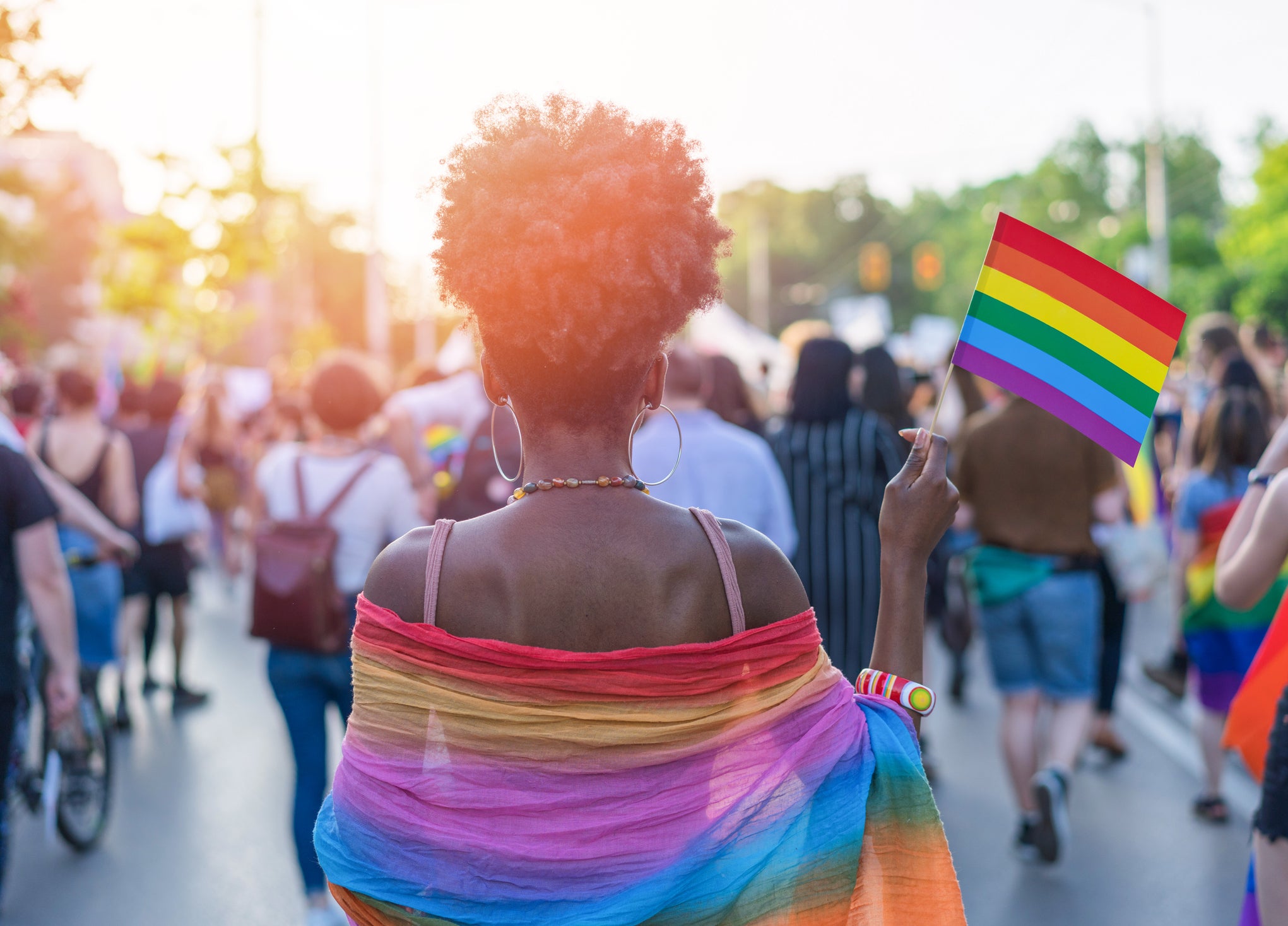‘I was told I was possessed by a demon’: What it is like undergoing gay conversion therapy
The suggestion that religious settings would be excluded from recent plans to ban conversion therapy in England and Wales is a major concern for campaigners and victims alike. Joanna Whitehead speaks to two people who have undergone this experience


Depression, anxiety, drug and alcohol misuse, homelessness and suicide are just a handful of the side effects experienced by those forced to undergo conversion “therapy”, according to Human Rights Watch. This dangerous and abusive practice attempts to change, “cure”, repress or erase a person’s sexual orientation and/or gender identity and has been widely discredited by mainstream medical and human rights organisations for decades, including the World Health Organisation, the NHS and the Royal College of Psychiatrists.
And yet, the process remains legal in England and Wales, despite numerous promises from successive government figures for it to be outlawed. In 2018, former Conservative leader Theresa May committed to outlawing this practice, but it wasn’t until 11 May that equalities minister Liz Truss announced that the government would finally prohibit it, following a consultation with the public and key stakeholders that would “protect the medical profession, defend freedom of speech and uphold religious freedom”.
Critics of this announcement, such as Stonewall, have questioned the need for a consultation, stating that a comprehensive bill must be published as a matter of urgency that ends this practice everywhere, without exception. However, the prime minister has been accused of trying to create a loophole in such a ban by suggesting it would not cover prayer in a religious setting.
In an April letter to the Evangelical Alliance – a group representing 3,500 churches across Britain – the prime minister reassured the religious community that the government takes “freedoms of speech and freedoms of religion very seriously”. He continued: “As the government made clear in 2018, when we first made our commitment to end conversion therapy, we will continue to allow adults to receive appropriate pastoral support (including prayer), in churches and other religious settings, in the exploration of their sexual orientation or gender identity.”
This news is of particular concern to both campaigners and those who have suffered under this archaic practice. In 2018, of the two per cent of 108,000 people who disclosed in an LGBT+ government survey that they had undergone conversion therapy, half revealed that this occurred in a faith context, emphasising the importance of such a ban applying within religious settings. While the jubilant messaging shared by MPs and government agencies has been interpreted by many as a win for equalities groups, the fight is far from over.
The Independent spoke to two people who have undergone attempts to “change” their sexual orientation within a religious context.
Sam*, 40
“I converted to Christianity when I was 17 and joined a youth group with some friends. We were given a checklist of ‘sins’ we might have previously committed which included ‘homosexual feelings and acts’. I ticked the box as I’d had a girlfriend earlier in my teens. The leaders saw this and said, ‘We’ll have to get somebody in to come and pray with you about that’.
“I was told by the youth leaders that I couldn’t possibly be gay because God would never make somebody gay because he hates homosexuality. They said that anybody who is gay must have suffered some massive childhood trauma that has not been dealt with. I was told that I was possessed by a demon and that was what was making me gay.
“The youth leaders called in the pastor from another church and his wife who came to meet with me one evening. I was asked intrusive, personal questions about my experiences and was made to individually name the people I’d had sexual encounters with and repent so that God could forgive me. There was lots of Hollywood praying, evangelical laying on of hands – ‘we’re going to shout at the demons until they leave your body’ – and pressing down on me and speaking in tongues. It was so intense and scary. It went on for a couple of hours until I said that I was OK and assured them I ‘felt different’.
It’s not about faith rights versus gay rights, it’s about human rights
“My parents had no idea this was going on. Nobody ever sought my consent; I was told ‘this is what you have to do if you want to be a Christian’. But it was also framed as, ‘God loves you and he will set you free from this and then you’ll be able to live the life that he’s planned for you’.
“It was very controlling and overbearing. They made me change my name to a more stereotypically ‘feminine’ name, change the way I dressed, suggested I changed my friends and stopped hanging out with boys – all to try and make me straight.
“I think what’s done the biggest damage wasn’t that I was pretending to be straight, but that I’d genuinely convinced myself that I had been made straight. The pressure to be straight and the intensity of the conversion experience… I was genuinely convinced myself that the ‘demons’ had been cast out and that I was now free. I then spent the next 20 years of my life living as a straight person.
Every human has got the right to be who they are without being told that they are broken or wrong in some way
“I only came out as gay last year. I feel like the opportunity to be who I really am was stolen from me for two decades. I have no idea who I might have met, who I might have built a relationship with, what my life could have been if I’d been living my authentic self. I’ve had years of mental health struggles: self-harm, even a suicide attempt. I describe it as ‘hetero prison’ – it didn’t fit me and it hurt… it was physically painful to keep living the life of this person I wasn’t.
“I really hope that the government goes ahead with banning conversion therapy – and without any special clauses for faith groups – because it’s not about faith rights versus gay rights, it’s about human rights. Every human has got the right to be who they are without being told that they are broken or wrong in some way. You can’t ‘fix’ a person – all you’re going to do is either force them into lying – whether that’s to the world or to themselves – and create all the mental health trauma that comes with that.
“I do still have faith. I can’t deny that God has been a massive part of my life. That doesn’t mean that the people who do things claiming that they’re ‘serving God’ are right.”

Joe, 29
“I grew up in an orthodox Jewish community where sexuality wasn’t discussed. So, when I turned 17 and found an offer online for conversion therapy that promised to change my sexuality from gay to straight, it felt like a lifeline.
“I knew it would cost me money and that I needed financial support from my family for this. It was really difficult, but I felt comforted in a weird way that I could offer my parents a ‘solution’ to what I saw as a problem at the time. So, I came out to them. There was a lot of fear and pain. My dad was quite against the idea and mum was quite confused, but we went for it.
“I said to the therapist that I wanted to be ‘fixed’ as quickly as possible and they said because I was ‘eager and keen’ it would be quick. I ended up doing it for about two and a half years. It cost in the region of £50-80 a session. I think we spent in the region of £2-3,000 over the entire period, which was a lot to put towards something that didn’t work and was actually abusive.
The impact it had on me was immense. I didn’t really have an adolescence, I didn’t have a chance to explore myself, I didn’t have any room to be me
“There were often conversations about things that I grew up ‘lacking’: male role models, male friends, was I too close with my mother, did I play sports – very stereotypical things that not all gay people experience. But I believed it and began sharing really intimate details of my life for the first time. All the while, my sense of self was eroding. I began to feel more depressed and lonely – it stripped a lot of the joy from me.
“But I kept on being attracted to men. I would have moments of what was called ‘weakness’ and felt like a failure. And at the same time, the therapy sessions were becoming a bit repetitive. It became about managing [my homosexuality], like an addiction, and I knew that approach was never going to work for me.
“At the same time, I saw videos of young Jewish gay men speaking about their experiences of being gay for the first time. I felt really seen and understood and realised I needed to stop the conversion therapy and work towards accepting myself. But it took a long time for this to happen.
“The problem with conversion therapy is its intention; it’s not always packaged up in a really horrific way – it’s often presented as ‘oh, we’re just trying to help’. The experience was ‘insidious’ – it wasn’t something that was obviously abusive. They were very careful not to use any condemnatory language because they said it was about creating a safe space. They gave the illusion that I was being looked after when I actually wasn’t.
They talk about it like an advertisement campaign, telling you every day that you’re not good enough, you’re bad because you’re gay
“The impact it had on me was immense. I didn’t really have an adolescence, I didn’t have a chance to explore myself, I didn’t have any room to be me. That really affects you. They talk about it like an advertisement campaign, telling you every day that you’re not good enough, you’re bad because you’re gay – that lingers. LGBTQ people grow up with shame anyway – and this whole thing just compounded that beyond belief.
“Banning conversion therapy would mean that teachers and religious leaders would know that this is not something to do. It is not something that is effective and is actually abusive. And people who have experienced it, or who are experiencing it right now, would be able to report it. We’ve got to stamp out this abuse.”
Join our commenting forum
Join thought-provoking conversations, follow other Independent readers and see their replies
Comments